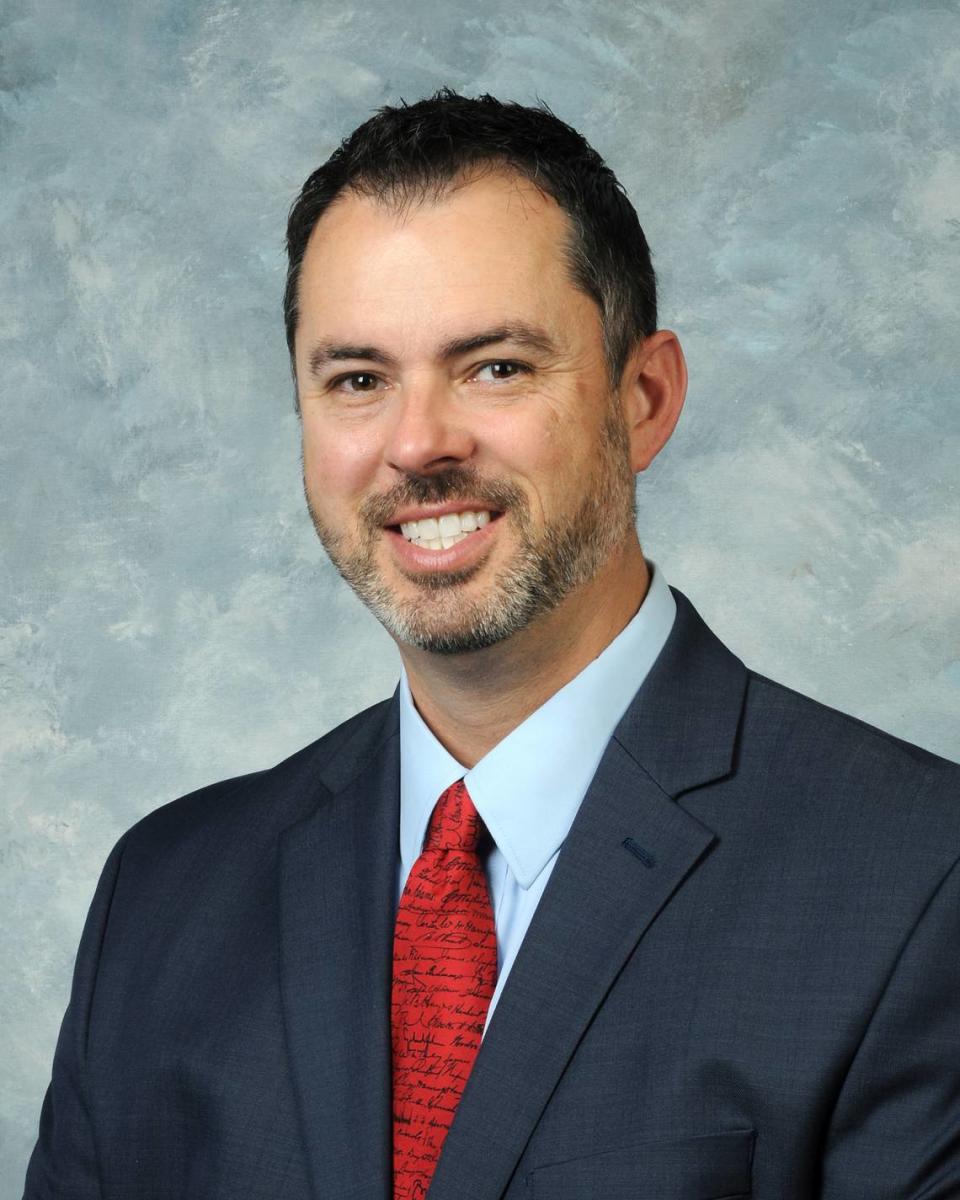A ‘public health crisis,’ KY GOP lawmakers want age verification for pornography sites
Kentucky could join a growing list of states to require pornography websites verify a user’s age before allowing them access adult content.
When similar laws have taken effect in other states, like North Carolina, Virginia, Utah, Mississippi and Montana, many prominent adult websites have responded by cutting off access to their porn catalogs entirely rather than comply.
A pair of matching bills — House Bill 241 from Rep. Shane Baker, R-Somerset, and Senate Bill 276 from Sen. Lindsey Tichenor, R-Smithfield — would require sites that host or distribute “matter harmful to minors” to confirm a user’s age by checking a government-issued identification card or another specified form of accepted verification.
“We need to make sure we can put some provisions in place where kids can be safe online, and even if that that one measure of having to verify their age helps, I think it’s worth doing,” Tichenor told the Herald-Leader Tuesday afternoon.
There needs to be “some accountability measures in place for these for porn sites and porn businesses who are reaching out on a very accessible platform,” she said, noting that porn addiction can lead to a “to a very, very dark road.”
Sign up for our Bluegrass Politics Newsletter
A must-read newsletter for political junkies across the Bluegrass State with reporting and analysis from the Lexington Herald-Leader. Never miss a story! Sign up for our Bluegrass Politics newsletter to connect with our reporting team and get behind-the-scenes insights, plus previews of the biggest stories.
The bills also say the General Assembly finds that porn has created “a public health crisis and (has) a corroding influence on minors” and “may lead to low self-esteem, body image disorders, an increase in problematic sexual activity at younger ages, and increased desire among adolescents to engage in risky sexual behavior.”
For these reasons and others, it says, it is “in the interest of the people of the Commonwealth of Kentucky” to protect minors from such materials.
Porn companies say they don’t oppose keeping kids away from adult content, but that’s not what these bills would accomplish.
In Louisiana, for example, PornHub said its traffic dropped 80% after complying with the state’s law.
“These people did not stop looking for porn,” the company said in a statement. “They just migrated to other corners of the internet that don’t ask users to verify age, that don’t follow the law, that don’t take user safety seriously, and that often don’t even moderate content.”

Language about the alleged harms of pornography used in the bills from Baker and Tichenor mirrors that of bills filed in Louisiana, Kansas and Montana, the Herald-Leader found.
At least eight states have passed such laws, according to the Free Speech Coalition, and more than two-dozen others are considering such legislation.
The coalition, the adult industry’s trade association, says it has “both the subject matter expertise and sincere desire to collaborate with legislators on workable solutions.
“Unfortunately, the proposals being put forward in statehouses around the country have significant practical, technical and legal problems that will undermine its effectiveness in protecting children, create serious privacy risks and infringe on Americans’ Constitutional rights,” the group said.
The Kentucky bills would rely on private lawsuits to enforce the law.
If a website “knowingly or intentionally” distributes content to anyone under age 17 and did not perform the age verification mandated by the statute, “any person injured” or a parent or guardian can sue for damages of $10,000 “per instance that the covered platform failed to perform age verification to restrict the minor’s access to matter harmful to minors.”
It also allows for “actual damages, court costs and reasonable attorney’s fees.”
The bills would also penalize websites for retaining consumers’ personal information “after access has been granted to the matter.” Damages would accrue at the rate of $1,000 per day, plus “actual damages, court costs and reasonable attorney’s fees.”
The civil action could be brought in the circuit court of the county where the alleged violation occurred, where the plaintiff resides or in Franklin Circuit Court.
Baker’s bill was filed January 11 and has gained six GOP co-sponsors; it has not been assigned to a committee. Tichenor’s bill was just filed Monday.
Tichenor said she would be “100%” supportive of porn companies blocking their sites if her bill passes. However, she doesn’t anticipate that happening.
Tichenor said she wasn’t sure about her bill’s chances this year, but decided to file it after seeing Baker’s bill sit idle in the House.
Tichenor has taken a leading role since taking office in 2023 in the fight to protect kids from the content she deems harmful.
She’s the sponsor of Senate Bill 147, which would establish statewide policy regulating “adult-oriented businesses” and “sexually explicit” performances in public spaces, a definition that includes drag shows. She also sponsored a drag ban bill in 2023 that passed the Senate but died in the House.
Tichenor is also behind this year’s Senate Bill 249, which would require sex offenders who committed their offense against a child to use “his or her full legal name” on social media.
The first offense would be a Class A misdemeanor, and each subsequent violation would be a Class D felony.

